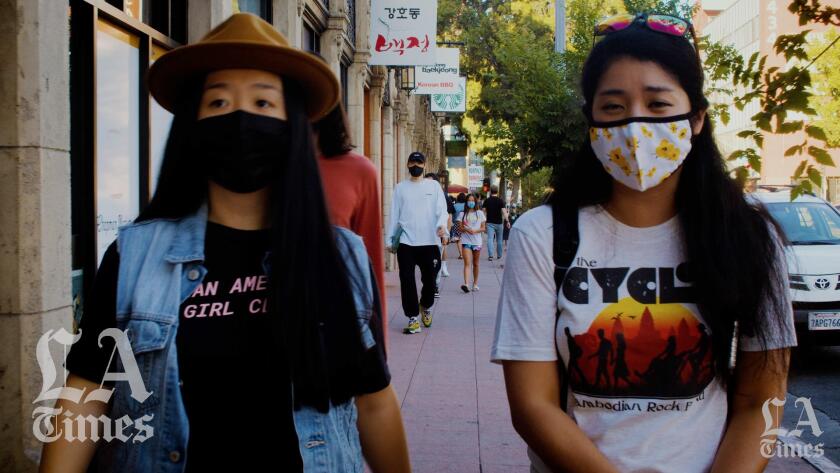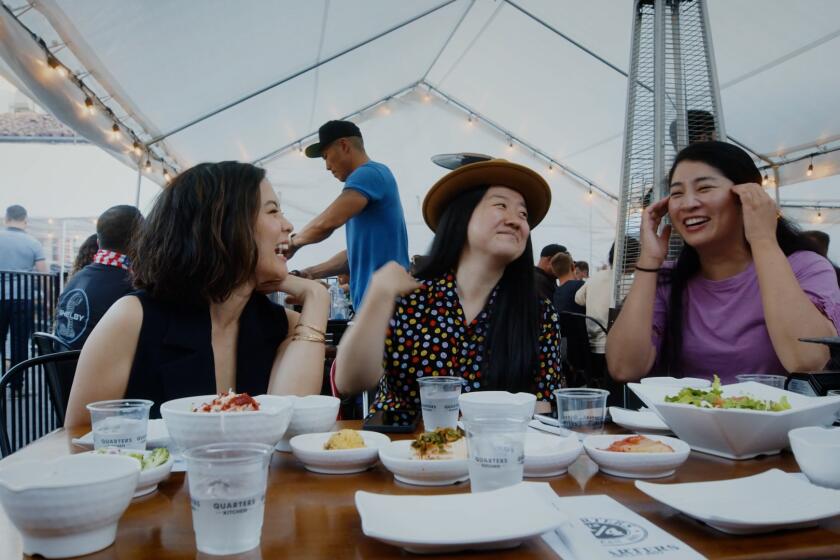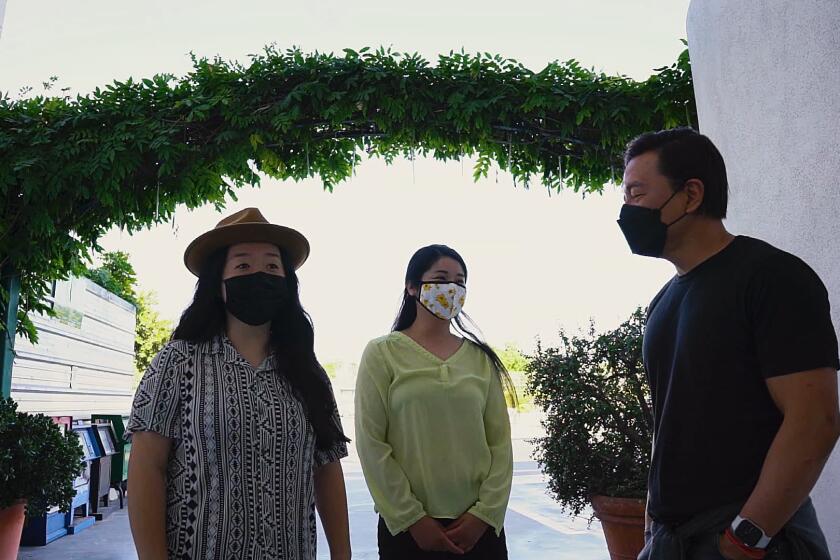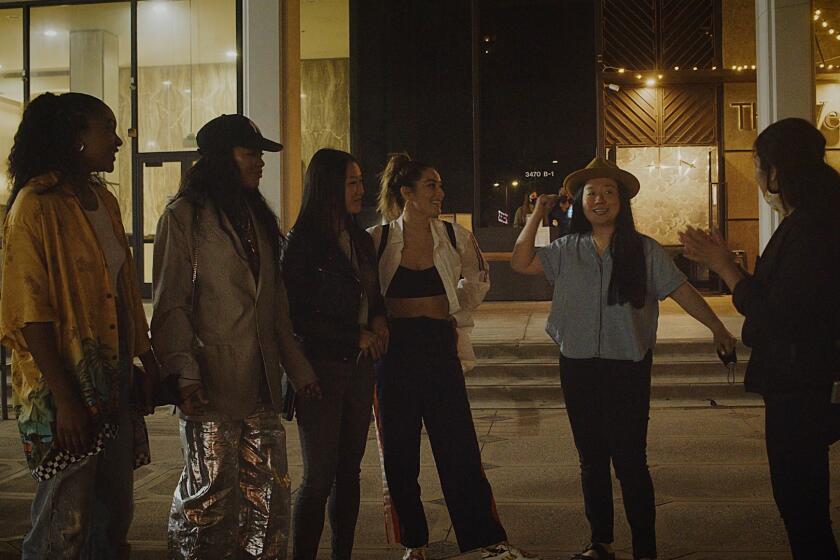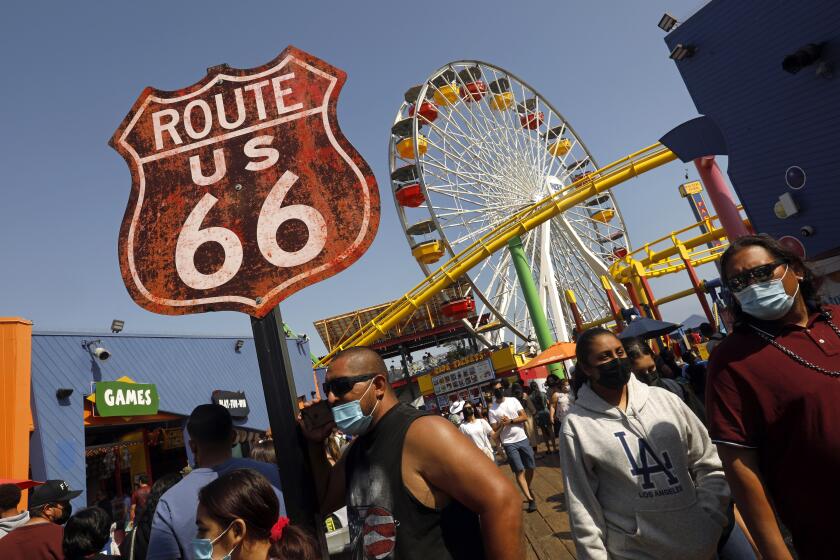Navigating L.A.’s COVID-19 reopening in Koreatown with ‘Good Trouble’s’ Sherry Cola
- Share via
To experience some of the next steps in L.A. reopening — and to think through making decisions about risk — we enlisted the help of actress and comedian Sherry Cola of “Good Trouble” -- as well as an infectious disease specialist and a health economist who has written extensively about COVID-19.
- Share via
Fifteen months since business shutdowns and stay-at-home orders went into effect in California, the state officially reopened its economy this month.
The reopening comes with some encouraging data and science:
- The state has one of the lowest daily coronavirus case rates in the nation, as well as one of the highest rates of vaccination.
- There’s increasing evidence that the vaccines are effective against known variants.
- Even if a vaccinated person is infected, the likelihood of the disease progressing to severe symptoms is very low.
- There’s also data suggesting that the risk of spreading the virus to others if you’re vaccinated is also lower.
As part of the reopening, Los Angeles County issued “best practices” guidance for businesses. Just as those are recommendations, not requirements, individuals are figuring out their own best practices — based on their local case counts and vaccination rates, whether they’re vaccinated, their vulnerability, the people at-risk in their circles and their own comfort levels.
“Moving forward, that’s going to be different for everybody,” said Catherine Le, an infectious disease physician who heads Cedars-Sinai Medical Center’s COVID-19 Recovery Program and wrote the children’s book “Coronavirus Is Boo Boo.” “How somebody wants to reintegrate into the world is going to be a very individual decision based on lots of things that you or I may not know about that person, so everybody’s choices should really be respected.”
Emily Oster, a Brown University economics professor, has been studying the data related to COVID-19. She developed a calculator to determine the risk of infection when interacting with multiple unvaccinated people, based on COVID rates in your area and serious illness risks.
“These first steps out are going to be uncomfortable,” Oster said. “We’re going to have that visceral reaction. But having overthought it and then getting to the place to say, ‘I’m feeling uncomfortable but know it’s safe because I’ve really thought through it’ [is important]. … And there’s value in continuing to reflect on this as we take these next steps.”
To experience some of those next steps — and think through making decisions about risk — we enlisted the help of actress and comedian Sherry Cola (“Good Trouble”).
Could we feel safe at the spa, a Korean barbecue restaurant and karaoke? The consensus from Oster and Le is that vaccines work, and that for most vaccinated people, getting back to activities we enjoyed before the pandemic are very low risk.
Cola, looking out for young single folks, wanted to know whether it was safe to make out with strangers again.
“One of the big losses of the pandemic is the lack of random people makeouts,” said Oster. “I think you’d want to see their vaccination card.”
Le likened it to another difficult conversation single people must navigate: whether and when someone has been tested for STDs.
“‘Before anything goes further, have you gotten vaccinated yet?’ — that might be the next frontier in dating,” Le said.
Oster said many people’s fears about COVID-19 arose when case rates were high, no one was vaccinated and we had to make difficult choices to navigate significant risks.
But if you look at the numbers now, the risks in Los Angeles are lower than other common risks that we take all the time without thinking about it — for example, getting in a car accident.
“We’ve been thinking about this like COVID-19 is the only risk and it’s the biggest risk and we should invest everything in that risk,” Oster said. “One thing that happened in the last couple months is that people realized some of the mental health tolls, other physical health tolls ... that the COVID isolation has taken. And once you put that into context, there are things we need to do to get back to better mental health and more interaction with the world.”
Le agreed.
“We’ve made a lot of sacrifices,” Le said. “We’ve gone through some really hard times.” But we can also start to appreciate returning to things we’ve missed. “And that’s really, really important.”
Here’s what else we learned.
